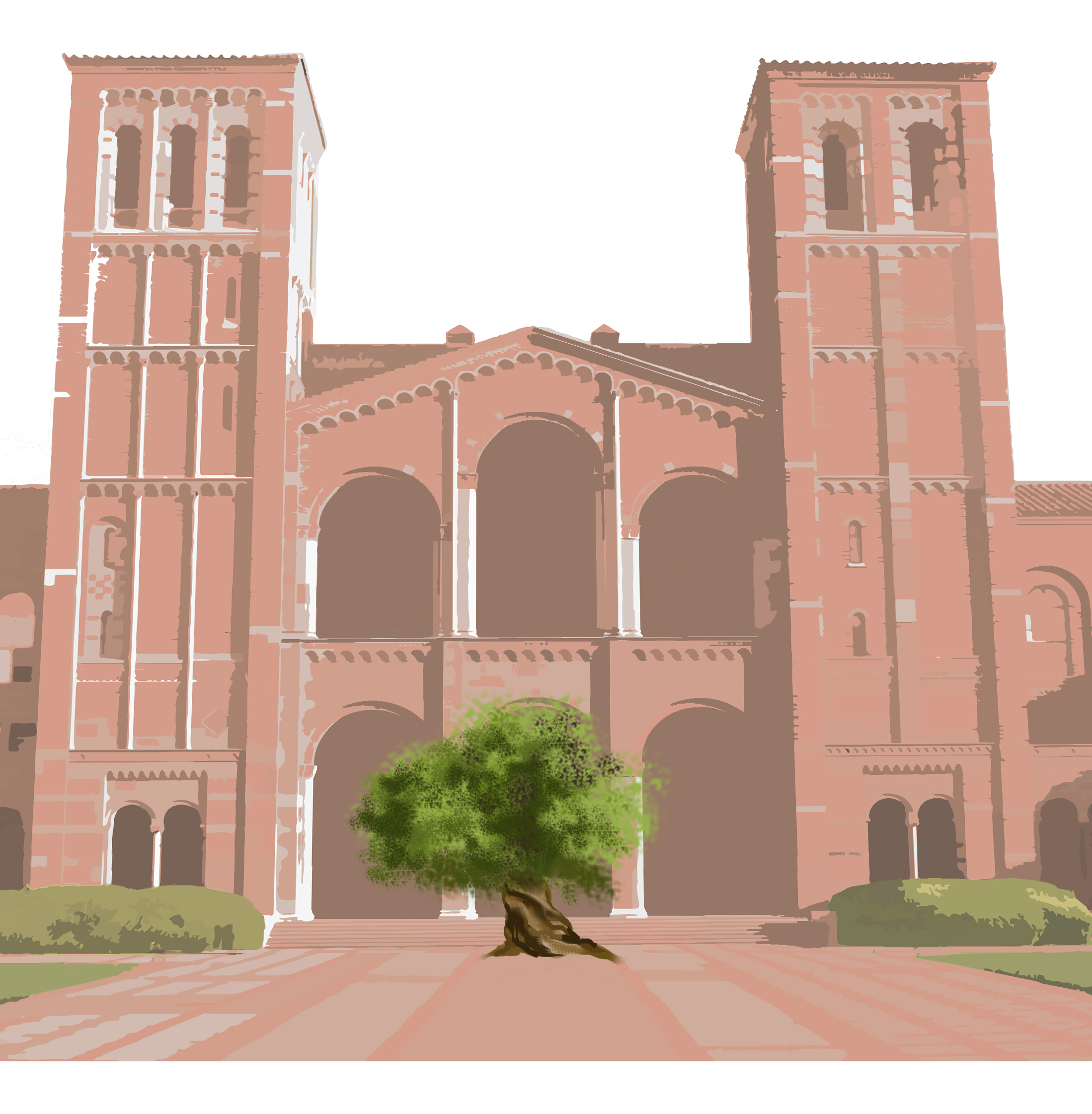Aram Ghoogasian: Nakba should be acknowledged while discussing Israel

(Kelly Cheuk Ying Ho/Daily Bruin)
By Aram Ghoogasian
May 15, 2015 1:00 a.m.
For many Palestinians, today doesn’t mark 67 years since the Nakba, but rather 67 years of the Nakba.
In 1948, an estimated 700,000 Palestinians were expelled from their homeland in what Palestinians call the Nakba, or “catastrophe,” that gave birth to the State of Israel. This tragedy has been compounded by the fact that, despite an affirmation by the United Nations that same year that the Palestinians could return to their homes or receive compensation if they wish, they still haven’t been granted the right of return.
Yet the Nakba is routinely overlooked in our campus discussions. Just recently, some students celebrated Israeli Independence Day, commemorating the formation of Israel. Throughout an entire day of festivities, there was no mention of the Nakba by those celebrating.
This has become par for the course. However, ignoring the Nakba creates a massive gap in what is arguably the most contentious debate on campus. The mass displacement of Palestinians is undoubtedly a major cornerstone of the conflict, no matter how polarizing it is.
Bruins for Israel president and fourth-year economics student Eytan Davidovits said the organization recognizes that the anniversary of the Nakba is a sensitive day for many students, opting to refrain from commenting.
But not recognizing the Nakba for what it is – a human tragedy – ensures that the conversation surrounding the Israeli-Palestinian conflict remains incomplete.
It’s more than fair to say the Jewish people needed a safe haven, especially in the 1940s. Few would dispute that. But that doesn’t make the expulsion of hundreds of thousands of people from their ancestral homeland any less tragic. If we are to elevate the quality of our discussion around this significant issue, the Nakba must, at the very least, be acknowledged and addressed by all groups who have a stake in the conversation.
That is particularly true because the parties that have a stake in this conversation do not exist only in a binary opposition, either “pro-Israel” or “pro-Palestine.” Nuance exists in this debate, and in order to acknowledge that nuance, we must acknowledge every part of the history of this conflict.
Third-year economics student Eitan Peled is Students for Justice in Palestine’s programming director and the transitioning president of Jewish Voice for Peace. Peled is the great-grandson of a signatory of the Israeli Declaration of Independence and grandson of a prominent Israeli general-turned-peace advocate. Peled lost a 13-year-old cousin to a suicide bombing in Israel.
Despite their family history, Peled and his family still advocate for the end of the occupation and the Palestinian right of return. Disregarding voices like Peled’s that work to disrupt the essentialist view of the two sides of the Israeli-Palestinian conflict is a huge obstacle for creating any sort of productive campus dialogue.
Peled also pointed out the mistakes we make when talking about the conflict on campus. Calling one side “pro-Israel” makes the other seem “anti-Israel,” even if some of those who are opposed to Israeli policy are only against human rights violations and support the Palestinian right of return, not necessarily against the state itself.
One subject that is often brought up in campus discussions to drown out this perspective is Hamas, the party and militant organization that effectively governs Gaza, and its consistent targeting of Israeli civilians. To be sure, many of Hamas’ actions are abhorrent, but some students quickly forget, or simply avoid talking about, the Zionist terrorism that led to the creation of Israel.
Events like the bombing of the King David Hotel in 1946, an event that has been celebrated in Israel; the infamous Deir Yassin massacre by the militant Zionist organization Irgun, then led by future Israeli prime minister and Nobel Peace Prize recipient Menachem Begin; and the dozens of other massacres carried out by the same group from 1937 to 1948, are huge parts of the narrative. These events, which culminated in the Nakba and are major milestones in the history of the creation of Israel, often go ignored in campus discourse.
These aren’t opinions on a complex issue. They’re indisputable historical events.
There can be no campus dialogue if history is deliberately swept under the rug. To use Hamas, which was founded in 1987, almost 40 years after the founding of Israel and 20 years after the ongoing occupation of the West Bank began, as a counterargument to pro-Palestinian students’ criticism of the occupation is to ignore the instrumental role terrorism played in the ethnic cleansing of Palestine and the creation of Israel.
Ignoring the Nakba while talking about Israeli independence is akin to talking about the history of the United States without mentioning the mass displacement of indigenous peoples. Historical revisionism can have dangerous consequences and can put mental and emotional strain on students affected by these traumatic events. It’s time for students to realize that.


